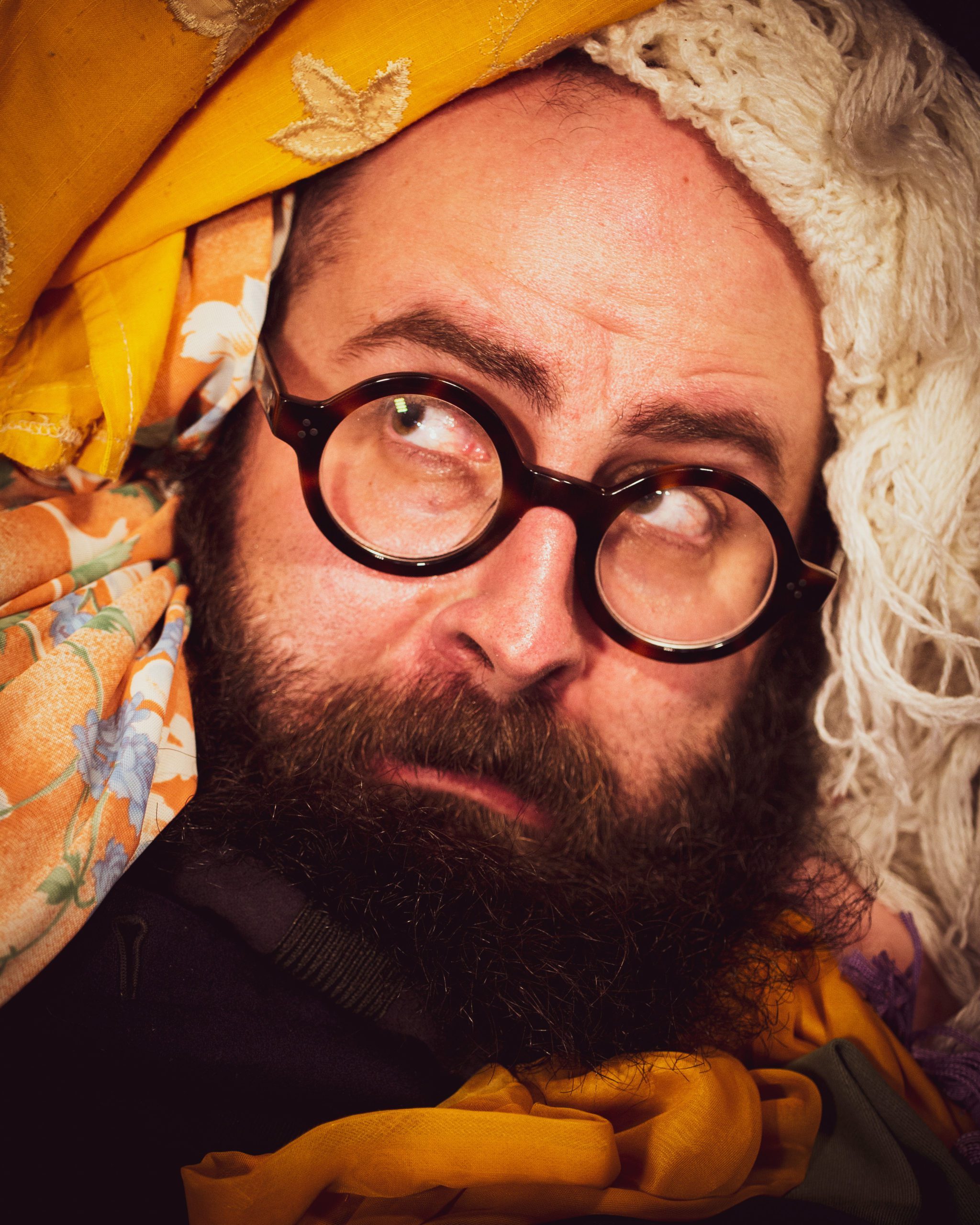OREM — The Merry Wives of Windsor is an anomaly in the Shakespeare canon. The play is Shakespeare’s only domestic comedy, and it is the only one that takes characters from his histories and plants them into a completely fictional story. A decade after their last production of Merry Wives, the Grassroots Shakespeare Company has revisited the play. This time around, the unusual play was paired with some unfortunate creative choices that made the evening a disappointment.
In The Merry Wives of Windsor, Sir John Falstaff returns (after originally appearing in Henry IV, Part 1 and Henry IV, Part 2) to seduce a pair of married women, Mistress Ford and Mistress Page. The two women are friends and neighbors, and both are completely uninterested in romance with the corpulent, overconfident knight. So, they conspire to lead him on so that they can make a fool of Falstaff and stay faithful to their husbands. Meanwhile, Master Page suspects that his wife is interested in Falstaff because she did not spurn him immediately, and he disguises himself to learn if she is faithful to him. Also, both Mistress and Master Page have plans to marry their daughter Anne to different suitors—neither of which she is interested in.
The Grassroots challenge is always to have a unified production without a director’s oversight. Some productions pull it off well (like Titus Andronicus, Love’s Labour’s Lost, or their most recent Hamlet), but this year’s Merry Wives is not among them. Each actor seemed to be doing their own thing, resulting in a show that felt more like a collection of audition monologues than a coherent ensemble production.
On the one hand, Daniel Fenton Anderson as Falstaff is the best thing on stage. Anderson gives Falstaff a self-assuredness that makes him an amusing target for the women’s antics. Anderson smoothly handles the Shakespearean dialogue and disappears completely into the character. Alyssa Vaughn, in the role of Mistress Page, is also a delight. Her reactions to Falstaff’s cheesy love letter and her enthusiasm for robbing him of his dignity did much to bring some vitality to the play. Finally, Sol Harmon gave an endearing performance as the young, lovestruck Fenton pursuing Anne Page. His sincere declarations of love were an enlightening contrast with the lusty, empty overtures from Falstaff. (Harmon’s Sir Hugh Evans, was bland and flat, though.)
On the other hand, the rest of the cast did not take their cues from these actors and instead chose a mishmash of unrealistic acting styles. For example, Brandon Bills as Master Ford, performed more like a stand-up comedian than a Shakespearean actor, while Chase Schetselaar as Peter Simple bizarrely played the character by creating an overexaggerated portrayal of child.
Most distracting, though, was the cross-gender casting in this production. Having actors play characters of the opposite sex is not unusual in Shakespeare, and I have applauded actors playing such roles before. (Indeed, Grassroots succeeded admirably with their all-male production of A Midsummer Night’s Dream.) Unfortunately, none of the performers playing characters of the opposite gender in The Merry Wives of Windsor were convincing in the least (especially Drake Hansen as Mistress Ford). Their performances and costume choices (such as the bearded Jarrith Parker McCoy‘s bizarre costume of a 1980s mom’s flower sweatshirt, a pencil-style miniskirt, fishnet stockings, 1950s cat eye glasses, and combat boots while playing Mistress Quickly) detracted from the story.
The costumes were a problem for this production. Missing was the “Grassroots chic” style of many of their shows, where modern fashion is accented with Renaissance touches, such as calf-high boots, tights, or laced-up closures. Instead, the costumes were a hodgepodge of clothes and pieces that were a chaotic mess and failed to form a logical visual aesthetic. Moreover, some performers wore clothing that was tight and unflattering, which was another distracting element.
Whether I consider this show in my capacity as a theatre critic, as a Grassroots fan, or as a Shakespeare aficionado, The Merry Wives of Windsor is a letdown. I hope that the company finds its mojo again soon so that they can resume their pre-pandemic track record of accessible, exciting productions of Shakespeare’s plays.
[box]The Grassroots Shakespeare Company production of The Merry Wives of Windsor plays nightly at 7:30 PM through January 8 at the SCERA Center for the Arts (745 South State Street, Orem). Tickets are $10-12. For more information, visit scera.org or grassrootsshakespeare.com.[/box]

